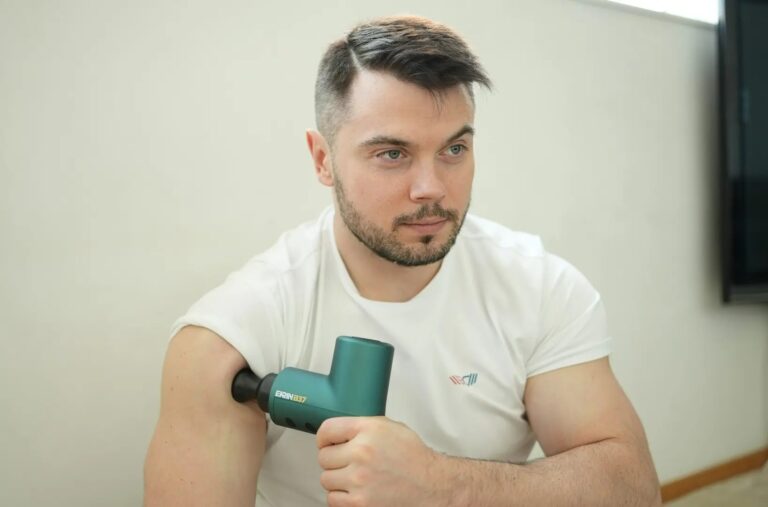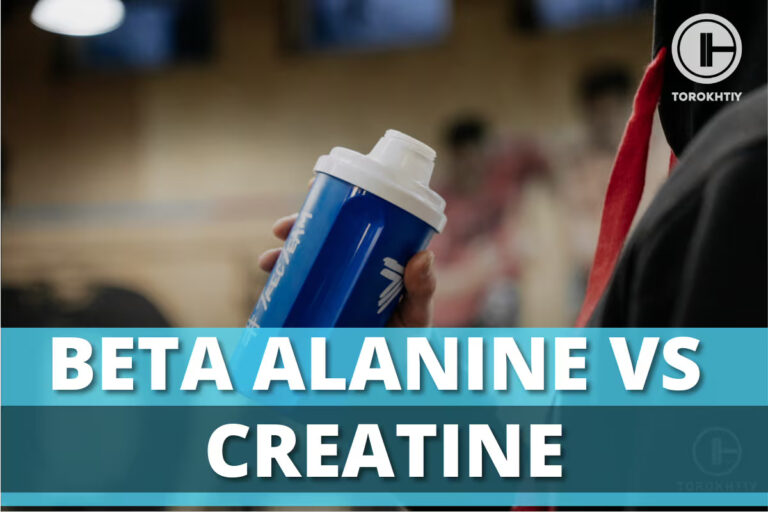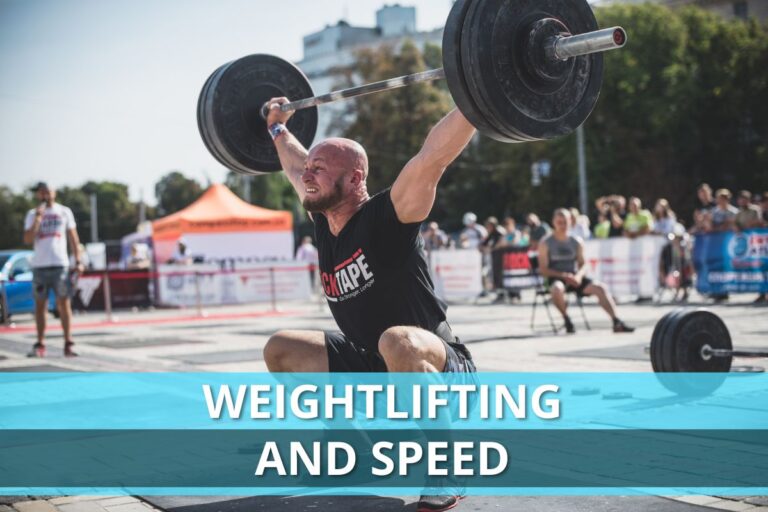A brief manual to vitamins
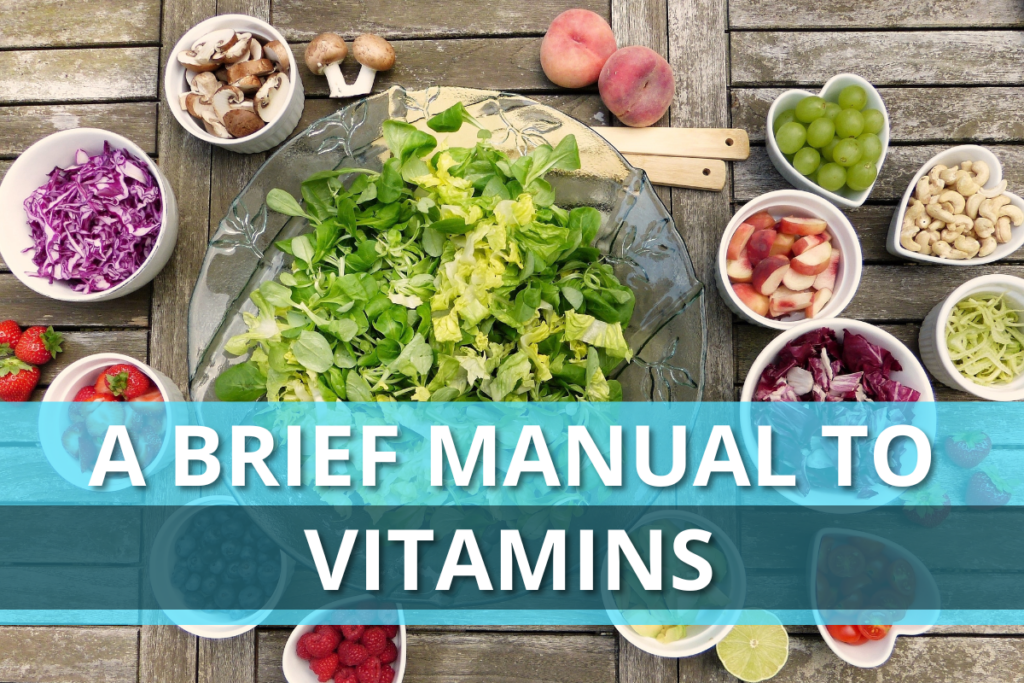
Vitamins are the group of organic compounds involved in the regulation of numerous biochemical reactions and functions of our bodies. They have an impact on all features, including those that are essential for us – the athletes.
Most vitamins are not produced by the human body, thus they need to be obtained from the food. The main vitamin sources are vegetable products, as these microelements are synthesized exactly by the plants. Animal products also contain vitamins as many tissues like muscles and liver can accumulate them.
Types of vitamins
Nowadays there are 13 essential vitamins that must be provided with well-balanced food. There are 4 fat-soluble (A, D, E and K) and 9 water-soluble (B-group and C) vitamins.
What makes fat-soluble vitamins different from water-soluble ones?
Molecules of fat-soluble vitamins are actually water-insoluble and can be dissolved only in fats, alcohols and esters. The absorption of fat-soluble vitamins, in this connection, is directly dependent on the fats and bile acids in the gastrointestinal tract. Such vitamins can be accumulated in the body.
Water-soluble vitamins are easily absorbed from the intestines into the bloodstream and their surplus is rapidly excreted in the urine, lowering their toxicity. These vitamins can’t be accumulated and stored in the body.
That’s why high fat-soluble vitamin values in your menu can lead to serious health problems, as they are toxic in big amounts. Huge doses of fat-soluble vitamins in the form of supplements can even cause death.
Fat-soluble vitamins are high temperature resistant and stay intact after the food thermal processing. As for the water-soluble vitamins (some of B-group and C), they are rather sensitive to heat and their concentration in the product inevitably lowers during the cooking.
Functions of vitamins
Fat-soluble vitamins and their functions
1. Vitamins A:
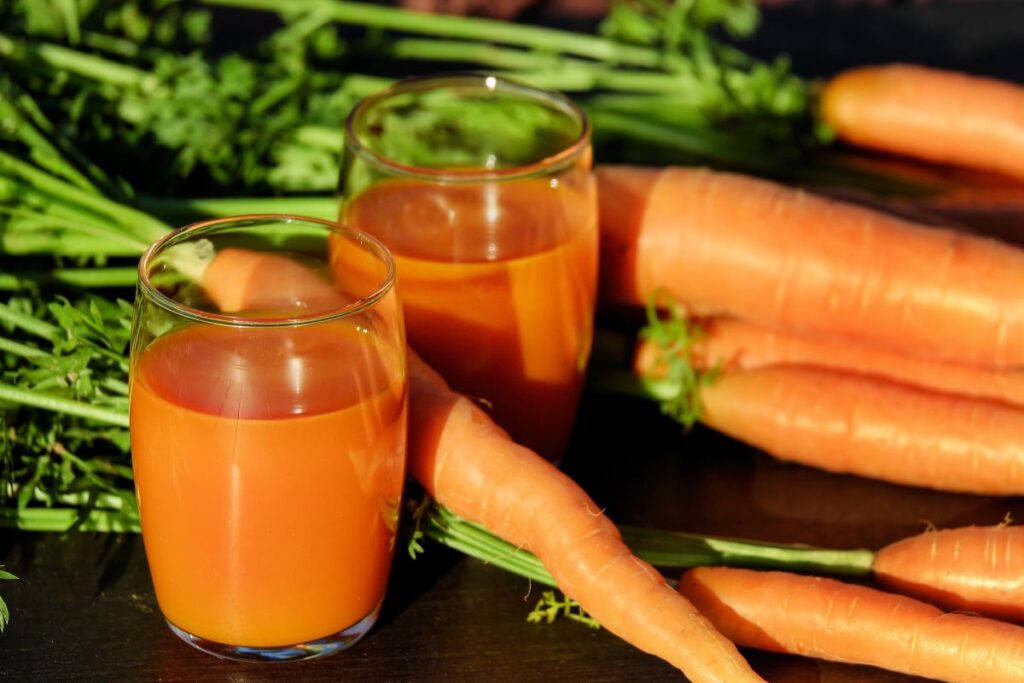
- Keeps teeth, skin, mucous membranes, skeletal muscles, bones and tissues healthy;
- It is crucial to keep the retina properly functional, enabling it to see in the dark and to distinguish colors;
- Supports the reproductive function and immune system; prevents autoimmune diseases;
- Plays an important role in heart, lungs and kidney formation and effective operation.
The best sources: liver, eggs, fish, hard cheeses, sweet potatoes, carrots, pumpkin, marrows, spinach, mango, melon, bell pepper, grapefruit, green leafy vegetables.
2. Vitamin D:
- Supports neuromuscular junction and immune function;
- Increases the absorption of the calcium and phosphorous activating bones mineralization;
- In tandem with calcium reduces the risk of osteoporosis;
- Reduces inflammation processes in the body;
- Reduces the risk of severe diseases like colorectal cancer and multiple sclerosis;
- The best sources: fatty fish (mackerel, herring, salmon) and ultraviolet (sunlight).
3. Vitamin E:
- Plays an important role in testosterone and other steroid hormones production;
- Lowers the muscles fatigue and spasms;
- It is the main antioxidant;
- Protects fats in low-density lipoproteins from oxidation, reducing the risk of cardiovascular diseases;
- Maintains the immune system.
The best sources: vegetable oils, nuts, green leafy vegetables, whole-grain food.
4. Vitamin K:
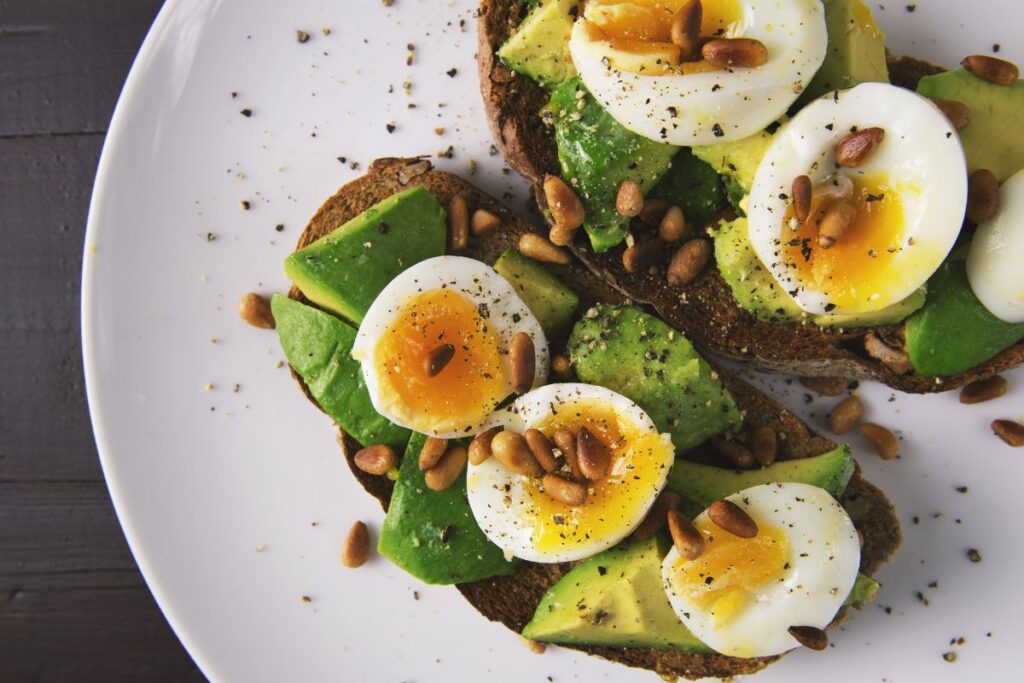
- Essential for blood coagulation process;
- Involved in bone metabolism protein synthesis;
- Prevents the blood vessels calcification;
The best sources: eggs, dairy products, meat, green leafy vegetables, vegetable oil.
Water-soluble vitamins and their functions
Certain B-group and C vitamins are part of the enzymes involved in ATP synthesis, which is the universal energy source for numerous processes in the body, including muscle contraction.
5. Vitamin C (ascorbic acid):
- Participates in protein synthesis;
- May accelerate post-workout recovery;
- Great antioxidant;
- Involved in collagen metabolism;
- Increases the absorption of non-heme iron;
- Necessary for the production of carnitine, serotonin and noradrenaline.
The best sources: fruits (especially citrus) and vegetables (especially bell peppers, broccoli, green leafy vegetables, tomatoes).
6. Vitamin B1 (thiamine):
- Plays a critical role in the process of energy production – it helps to transform carbohydrates into ATP;
- Helps to release neurotransmitters that are necessary for effective muscle contraction and synaptic signals mediation;
- Reduces fatigue after long workouts;
- Important for cell grows and functions;
The best sources: whole-grain food, pulses, nuts, watermelon, pork.
7. Vitamin B2 (riboflavin):
- It is a part of the enzymes involved in proteins, fats and carbohydrates metabolism;
- Prevents fatigue during the workouts;
- Participates in antioxidant reactions and detoxifies substances in the liver;
The best sources: eggs, liver, meat, milk, green vegetables.
8. Vitamin B3 (niacin):
- Crucial for the nerve system proper functioning;
- Participates in the oxidation of carbohydrates and fats;
- Participates in glutathione recovery, which is the main antioxidant;
The best sources: meat, poultry, red fish, pulses, sunflower seeds.
9. Vitamin B5 (pantheistic acid):
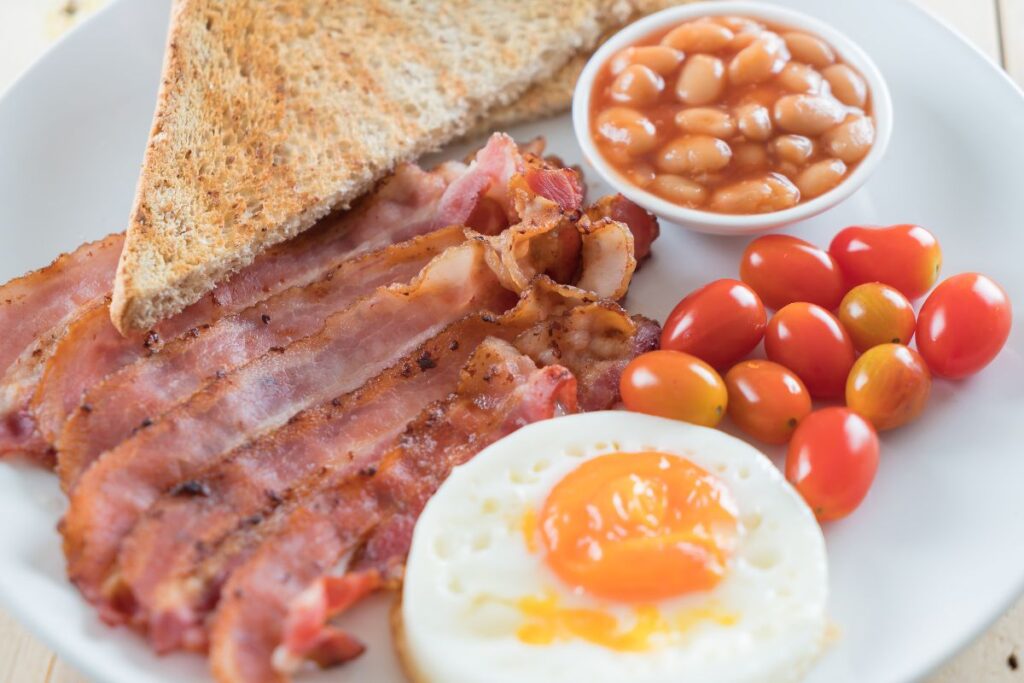
- Helps to prevent overtraining;
- Provides anabolic effect by increasing steroid hormones production;
- Participates in proteins, fats and carbohydrates metabolism;
- Increases the resistance to infections.
The best sources: liver, pork, chicken, egg yolks, milk and yogurts, pulses, mushrooms, avocado, broccoli, sweet potato.
10. Vitamin B6 (pyridoxine):
- Partakes in energy production by breaking down glycogen to glucose;
- Helps to gain muscles, actively participating in amino acids metabolism and steroid hormones production;
- Vitamin B6 combined with B9 and B12 are important auxiliary substances for turning creatine into creatine phosphate;
- Boosts the magnesium absorption helping to resist spasms and cramps;
The best sources: fish, beef liver, potatoes and other starchy vegetables, fruits (except citrus).
11. Vitamin B7 (biotin):
- Important for amino acids metabolism;
- Involved in glycose and fatty acids synthesis;
- Partakes in branched-chain amino acids catabolism: lysine, isoleucine and valine;
- Helps to maintain optimal glucose levels in the blood.
Best sources: chocolate, grain products, egg yolks, pulses, milk, nuts, liver, pork.
🔻Maximum Performance Nutrition Program
Unlock your maximum potential with our Maximum Performance Nutrition Program. Tailored for weightlifters, this program offers serving-based diet planning, no food weighing required.
Perfectly complement your training for efficiency, body composition, competition prep, and weight class adjustments. Optimize performance, carbs, meal timing, and supplements.
Weightlifting Meal Plan Details:
- Easy step-by-step instructions;
- Serving control basis with no food weighing;
- Calorie intake is calculated for body mass;
- Adapts to your training schedule;
- Detailed guidance on progress tracking;
- Meal timing and serving sizes master tools;
- One-time payment for unlimited access.
Level up your game today!
12. Vitamin B9 (folate):
- Essential for brain functioning;
- Together with B6 and B12 vitamins helps to turn creatine into creatine phosphate;
- With C and B12 vitamins participates in proteins metabolism;
- Helps to prevent fatigue caused by physical exercises;
The best sources: dark green leafy vegetables, pulses, meat, eggs, grain products, seafood.
13. Vitamin B12 (cobalamin):
- Prevents fatigue;
- Participates in muscle growth and protein synthesis;
- Acts as the cofactor for turning the creatine into creatine phosphate;
- Supports the central nervous system.
The best sources: meat, fish, dairy products, eggs. In its natural form Vitamin B12 is contained in all animal products.
You can use our nutrition plans instead of keeping all the aforementioned details in your mind. They have been developed for each of you to get all essential vitamins in proper dosage.
You might be interested in:
Why Trust Us?
With over 20 years in Olympic Weightlifting, our team does its best to provide the audience with ultimate support and meet the needs and requirements of advanced athletes and professional lifters, as well as people who strive to open new opportunities and develop their physical capabilities with us.
By trusting the recommendations of our certified experts in coaching, nutrition, dietology, and sports training programming, as well as scientific consultants, and physiotherapists, we provide you with thorough, well-considered, and scientifically proven content. All the information given in the articles concerning workout programming, separate exercises, and athletic performance, in general, is based on verified data. We ensure that you can rely on our professionals’ pieces of advice and recommendations that can be treated as personalized ones which will benefit you and fully meet your needs.
The product testing process is described in more detail here
Author: Sergii Putsov
Head of Sport Science, PhD
Best Results: Snatch – 165 kg,
C&J – 200 kg
Sergii Putsov, Ph.D., is a former professional weightlifter and National team member, achieving multiple medals in the 94 kg weight category at national competitions. With a Master’s degree in “Olympic & Professional Sport Training” and a Sport Science Ph.D. from the International Olympic Academy, Greece, Sergii now leads as the Head of Sport Science. He specializes in designing training programs, writing insightful blog articles, providing live commentary at international weightlifting events, and conducting educational seminars worldwide alongside Olympic weightlifting expert Oleksiy Torokhtiy.




